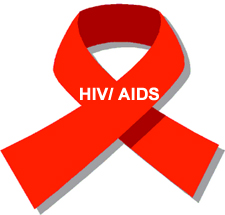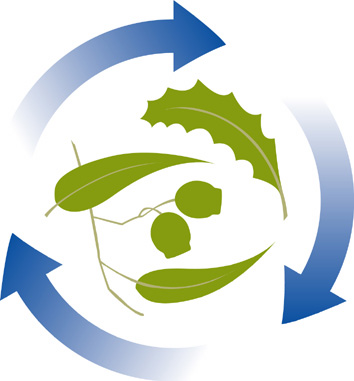|
 In recent years,
the concept of Corporate Social Responsibility (CSR) has become
increasingly important to the general business community and to
those who In recent years,
the concept of Corporate Social Responsibility (CSR) has become
increasingly important to the general business community and to
those who
 seek to influence the activities of companies and
industries. This concept is multi-dimensional, encompassing a wide
range of business practices (e.g. health and safety policies,
community involvement, stakeholder dialogue, adherence to regular
codes of conduct) but also covering activities that go beyond
companies' operations. seek to influence the activities of companies and
industries. This concept is multi-dimensional, encompassing a wide
range of business practices (e.g. health and safety policies,
community involvement, stakeholder dialogue, adherence to regular
codes of conduct) but also covering activities that go beyond
companies' operations.
 For many companies in the research-based pharmaceutical industry,
CSR is a fully integrated element of their strategies and
operations. This implies that, in addition to following a socially
responsible business model (consistent with global standards such
as health, safety and environment policies, for example),
pharmaceutical companies undertake many additional activities
related to healthcare, particularly (but not exclusively) in
developing countries. For many companies in the research-based pharmaceutical industry,
CSR is a fully integrated element of their strategies and
operations. This implies that, in addition to following a socially
responsible business model (consistent with global standards such
as health, safety and environment policies, for example),
pharmaceutical companies undertake many additional activities
related to healthcare, particularly (but not exclusively) in
developing countries.
 The activities of pharmaceutical companies cover a number of areas
such as: improving access to medicines in developing countries,
donation programmes, research and development for diseases
prevalent in developing countries, investing in health related The activities of pharmaceutical companies cover a number of areas
such as: improving access to medicines in developing countries,
donation programmes, research and development for diseases
prevalent in developing countries, investing in health related education and prevention programmes and establishing global safety
and ethical standards into daily business practice. Confronted
with new emerging diseases and increasing microbial resistance to
existing medicines, the most important role of the research-based
pharmaceutical industry is to continue to create and develop new
products. As expressed by Nobel Prize Laureate, Joshua Lederberg;
"In the race against microbial genes, our best weapon is our wits,
not natural selection on our genes."
education and prevention programmes and establishing global safety
and ethical standards into daily business practice. Confronted
with new emerging diseases and increasing microbial resistance to
existing medicines, the most important role of the research-based
pharmaceutical industry is to continue to create and develop new
products. As expressed by Nobel Prize Laureate, Joshua Lederberg;
"In the race against microbial genes, our best weapon is our wits,
not natural selection on our genes."
 The primary societal responsibility of the pharmaceutical industry
is to discover and develop new drugs and vaccines. The industry
currently has more than 100 new drugs and vaccines in development
for HIV/AIDS, plus major industry-supported initiatives to The primary societal responsibility of the pharmaceutical industry
is to discover and develop new drugs and vaccines. The industry
currently has more than 100 new drugs and vaccines in development
for HIV/AIDS, plus major industry-supported initiatives to
 advance
research and development for new drugs in malaria, tuberculosis
and other diseases prevalent in developing countries. Companies
undertake these activities individually and independently, but
also involve stakeholders from different sectors. Between 1998 and
2002, contributions from the 10 largest pharmaceutical companies
for health-related programmes in the least developed countries
totalled US$2.2 billion[*]. advance
research and development for new drugs in malaria, tuberculosis
and other diseases prevalent in developing countries. Companies
undertake these activities individually and independently, but
also involve stakeholders from different sectors. Between 1998 and
2002, contributions from the 10 largest pharmaceutical companies
for health-related programmes in the least developed countries
totalled US$2.2 billion[*].
 The industry has made and continues to expand its efforts to
ensure that patients have access to the medicines they need. The
vision for the pharmaceutical industry's role in global healthcare
is to create and develop medicines that save and improve the lives
of millions of people and, in partnership with governments and
other organisations, to help improve access to them. The industry has made and continues to expand its efforts to
ensure that patients have access to the medicines they need. The
vision for the pharmaceutical industry's role in global healthcare
is to create and develop medicines that save and improve the lives
of millions of people and, in partnership with governments and
other organisations, to help improve access to them.
 Currently there are more than 50 separate public-private
partnerships around the world, based on individual company
contributions or working through groups of companies in
collaboration with international bodies. In addition to donations,
there are numerous initiatives where the industry provides
education, infrastructure and technical assistance to developing
countries. Currently there are more than 50 separate public-private
partnerships around the world, based on individual company
contributions or working through groups of companies in
collaboration with international bodies. In addition to donations,
there are numerous initiatives where the industry provides
education, infrastructure and technical assistance to developing
countries.
 Some examples of pharmaceutical companies' activities in corporate
social responsibility include: Some examples of pharmaceutical companies' activities in corporate
social responsibility include:
 In In addressing the
HIV/AIDS crisis a number of companies are
working with UN agencies and other international institutions in
what is called the Accelerating Access Initiative (AAI). In this programme, companies are supplying products at steeply discounted
costs to patients in a growing number of countries in Africa and
world-wide, in the poorest countries, frequently at prices below
copycat producers who are not burdened by research costs. addressing the
HIV/AIDS crisis a number of companies are
working with UN agencies and other international institutions in
what is called the Accelerating Access Initiative (AAI). In this programme, companies are supplying products at steeply discounted
costs to patients in a growing number of countries in Africa and
world-wide, in the poorest countries, frequently at prices below
copycat producers who are not burdened by research costs.
 By the end of March 2003, a total of 80 countries had indicated
their interest participating. Furthermore, companies are donating
drugs to developing countries for mother-to-child-transmission of
HIV and for opportunistic AIDS infections. By the end of March 2003, a total of 80 countries had indicated
their interest participating. Furthermore, companies are donating
drugs to developing countries for mother-to-child-transmission of
HIV and for opportunistic AIDS infections.
 Companies have also played a leading role in the establishment of
the Medicines for Malaria Venture (MMV), one of the first
public-private partnerships focused on product-development for a
disease prevalent in developing countries. Today, companies are
contributing their skills and expertise to the objective of
launching one new anti-malarial medicine every five years. Companies have also played a leading role in the establishment of
the Medicines for Malaria Venture (MMV), one of the first
public-private partnerships focused on product-development for a
disease prevalent in developing countries. Today, companies are
contributing their skills and expertise to the objective of
launching one new anti-malarial medicine every five years.
 In the area of vaccines for children, the industry is an active
partner in the Glo In the area of vaccines for children, the industry is an active
partner in the Glo bal Alliance for Vaccine and Immunisation (GAVI).
The GAVI is boosting immunisation rates and reducing the gap in
vaccine access among children in developing countries. Industry
also makes a financial contribution to the operation of the GAVI
secretariat. bal Alliance for Vaccine and Immunisation (GAVI).
The GAVI is boosting immunisation rates and reducing the gap in
vaccine access among children in developing countries. Industry
also makes a financial contribution to the operation of the GAVI
secretariat.
 Through the Global Alliance for TB Drug Development, industry
works together with more than 30 partners around the world to
accelerate the discovery and development of cost-effective new
drugs for tuberculosis. The alliance draws on the expertise of our
industry. Through the Global Alliance for TB Drug Development, industry
works together with more than 30 partners around the world to
accelerate the discovery and development of cost-effective new
drugs for tuberculosis. The alliance draws on the expertise of our
industry.
 In practice the pharmaceutical industry, through its voluntary
initiatives, has not only become a leading CSR performer but is
also increasingly recognised as a key player in the area of global
health. Its combined contributions, i.e. financial, in-kind
donations, expertise, know-how, etc., make a real difference
globally to millions of people in need and are comparable in scale
with the efforts of many international organisations and global
initiatives. In practice the pharmaceutical industry, through its voluntary
initiatives, has not only become a leading CSR performer but is
also increasingly recognised as a key player in the area of global
health. Its combined contributions, i.e. financial, in-kind
donations, expertise, know-how, etc., make a real difference
globally to millions of people in need and are comparable in scale
with the efforts of many international organisations and global
initiatives.
 Most importantly, it should be emphasised that the industry's
primary role and major social responsibility is to deliver new,
innovative, medicines. Furthermore, besides its support for the
goals of corporate social responsibility, it should be recognised
that the research-based pharmaceutical industry is the main source
of all modern pharmaceutical products, responsible for saving
lives and improving the quality of life in our society. Most importantly, it should be emphasised that the industry's
primary role and major social responsibility is to deliver new,
innovative, medicines. Furthermore, besides its support for the
goals of corporate social responsibility, it should be recognised
that the research-based pharmaceutical industry is the main source
of all modern pharmaceutical products, responsible for saving
lives and improving the quality of life in our society.

Pharmaceuticals Products |
Diseases |
Generic Index |
Taj
Generic |
API |
Manufacturing
Pharmacological Index
|
Generic Medicines |
PDF Download |
DOC Download
Brochures Download |
API Manufacturing |
Virtual Tour of Plants
|



 seek to influence the activities of companies and
industries. This concept is multi-dimensional, encompassing a wide
range of business practices (e.g. health and safety policies,
community involvement, stakeholder dialogue, adherence to regular
codes of conduct) but also covering activities that go beyond
companies' operations.
seek to influence the activities of companies and
industries. This concept is multi-dimensional, encompassing a wide
range of business practices (e.g. health and safety policies,
community involvement, stakeholder dialogue, adherence to regular
codes of conduct) but also covering activities that go beyond
companies' operations. advance
research and development for new drugs in malaria, tuberculosis
and other diseases prevalent in developing countries. Companies
undertake these activities individually and independently, but
also involve stakeholders from different sectors. Between 1998 and
2002, contributions from the 10 largest pharmaceutical companies
for health-related programmes in the least developed countries
totalled US$2.2 billion[*].
advance
research and development for new drugs in malaria, tuberculosis
and other diseases prevalent in developing countries. Companies
undertake these activities individually and independently, but
also involve stakeholders from different sectors. Between 1998 and
2002, contributions from the 10 largest pharmaceutical companies
for health-related programmes in the least developed countries
totalled US$2.2 billion[*]. addressing the
HIV/AIDS crisis a number of companies are
working with UN agencies and other international institutions in
what is called the Accelerating Access Initiative (AAI). In this programme, companies are supplying products at steeply discounted
costs to patients in a growing number of countries in Africa and
world-wide, in the poorest countries, frequently at prices below
copycat producers who are not burdened by research costs.
addressing the
HIV/AIDS crisis a number of companies are
working with UN agencies and other international institutions in
what is called the Accelerating Access Initiative (AAI). In this programme, companies are supplying products at steeply discounted
costs to patients in a growing number of countries in Africa and
world-wide, in the poorest countries, frequently at prices below
copycat producers who are not burdened by research costs.


